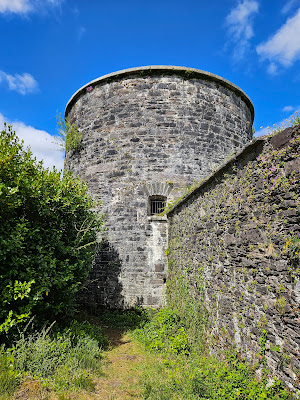As usual these are new-to-me games unless they're not:
5 Towers: A push-your-luck filler card game. I'd play it again.
Coal Baron - The Great Card Game: It was OK, rather than great. I've never played the original board game.
Colt Super Express: Funnily enough, this wasn't super either. In this case I have played the original and it's much better.
Dice Hospital: A worker placement game in which dice - which arrive in little model ambulances - represent patients whom you either cure by raising their value above six or, well, don't cure if their value drops to zero. I enjoyed it.
Draftosaurus: A nice little filler with way more luck than skill, although that doesn't stop one feeling good when one drafts the best set of dinosaurs.
Dune Imperium: Currently my favourite game and one I'd definitely recommend to the wargamers amongst you because while conflict isn't central to the game you won't win unless you choose the appropriate time to join the fight. I played it in this period both with and without the Rise of Ix expansion, and think it better with. We also played once with some of the cards from Dune Imperium Uprising and that seemed to work OK.
Dwellings of Eldervale: A thematically preposterous game, in which one puts a roof on to a worker's head and calls it a house. I liked it though, and think the variation in set up will make it highly replayable. Conflict is not central to this either, and my advice is to avoid initiating it if you possibly can.
Let's Go! To Japan: The theme, planning a holiday in Tokyo and Kyoto, is pretty thin on top of what is basically a not bad abstract game.
O Zoo le Mio: Passable short tile laying game.
Penguin Party: I rather liked this short, hand-management card game.
Planet Unknown: Not a new-to-me game but worth mentioning because I managed to fill the entire board. It was, of course, luck rather than skill.
Power Grid - Japan: It's a very tight map, and the special rules for it offer a compensation mechanism. I wondered what would happen if one didn't use it. What happened was that I lost badly.
Sail to India: This hasn't hit the table at all for five years, and then suddenly it's one of my most played games of the year. There's a lot of game in that small box.
Taboo: A team word game; there are much better ones out there.
Undaunted Battle of Britain: This is the first of the Undaunted games that I have played, a good fifteen months after I bought it at Britcon. I have to say that I was impressed, and would like to try the others. Very simplified - no altitude - but surprisingly thinky nonetheless.
War of the Three Sanchos 1065-1067: Quite probably the most obscure game I played all year, this is an asymmetric wargame set in medieval Spain, at a time when everyone was called Sancho. Except, obviously for the Cid, who puts in the odd appearance. I enjoyed it, as I suspect would many wargamers.
Workshop of the World: A sort of sub-Brass, or possibly a precursor. I thought it was OK.
Windmill Valley: Not just windmills, but dykes and tulips too. But surely there aren't any valleys in the Netherlands; it's flat? The gimmick is that each player has a rotating wheel thing, all of which contain the same action spaces in a different order, which sort of pushes one towards varying starting strategies. I liked it, but wasn't very good at it. One of our group absolutely loathed it, so I'm not sure we'll ever see it again.




















.jpg)





.jpg)
.jpg)
.jpg)











.jpg)






